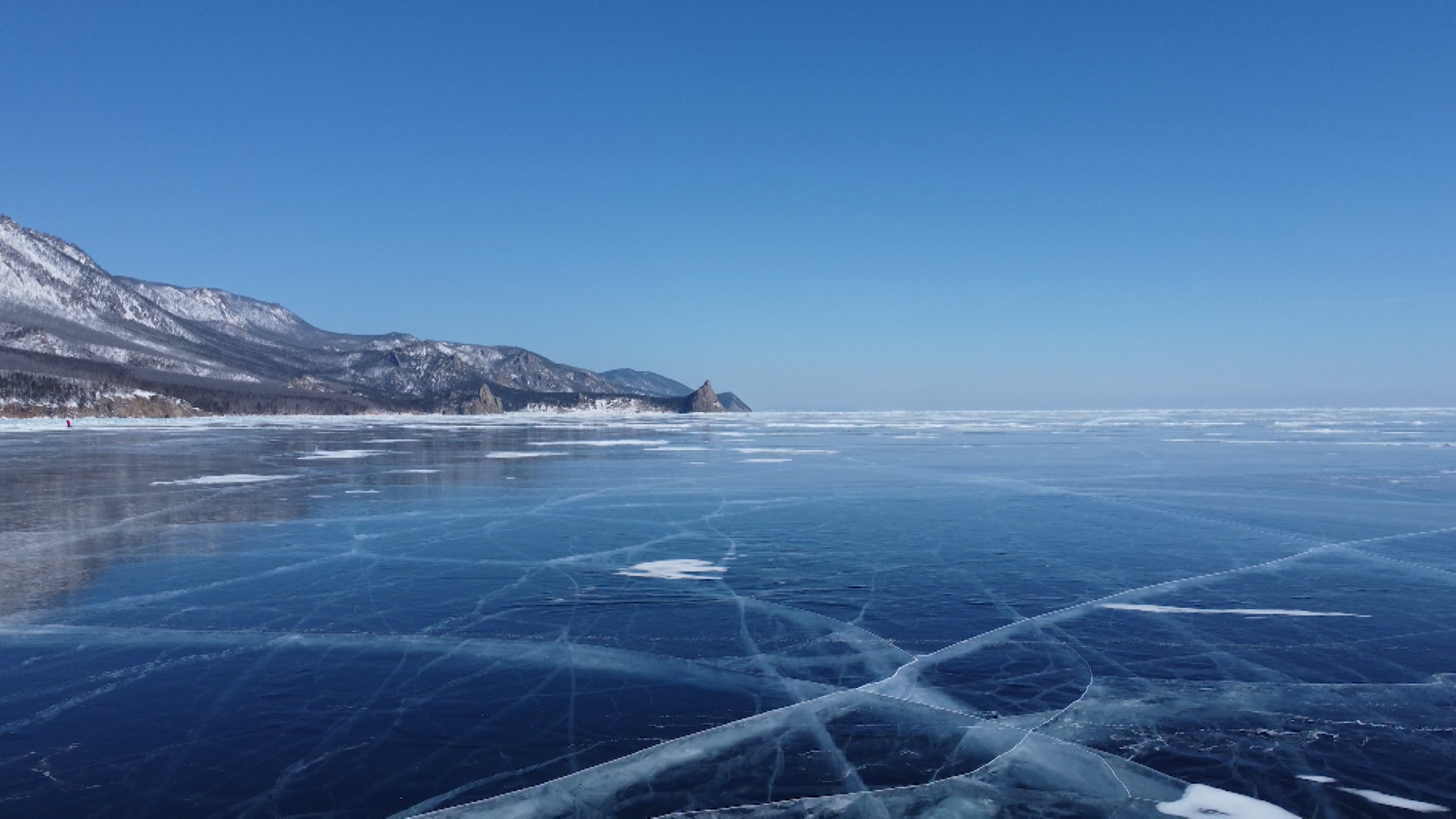April 5, 2021
Siberia's Lake Baikal is intensely cold, wild and uniquely beautiful.
Practically free of sediment and impurities, its ice has the clarity of a sheet of glass.
The first step you take on the frozen surface, you fight the sensation that you might crash through into some of the world's coldest water below.
In fact, the ice is deceptively thick — more than a metre — and sturdy enough to support a cement truck.
"When they get here, people are amazed and say, 'Why didn't we come here before?' " said Igor Pobotkin, one of the many tour guides navigating the lake.
Embedded white bubbles of methane gas add an artistry to the ice.
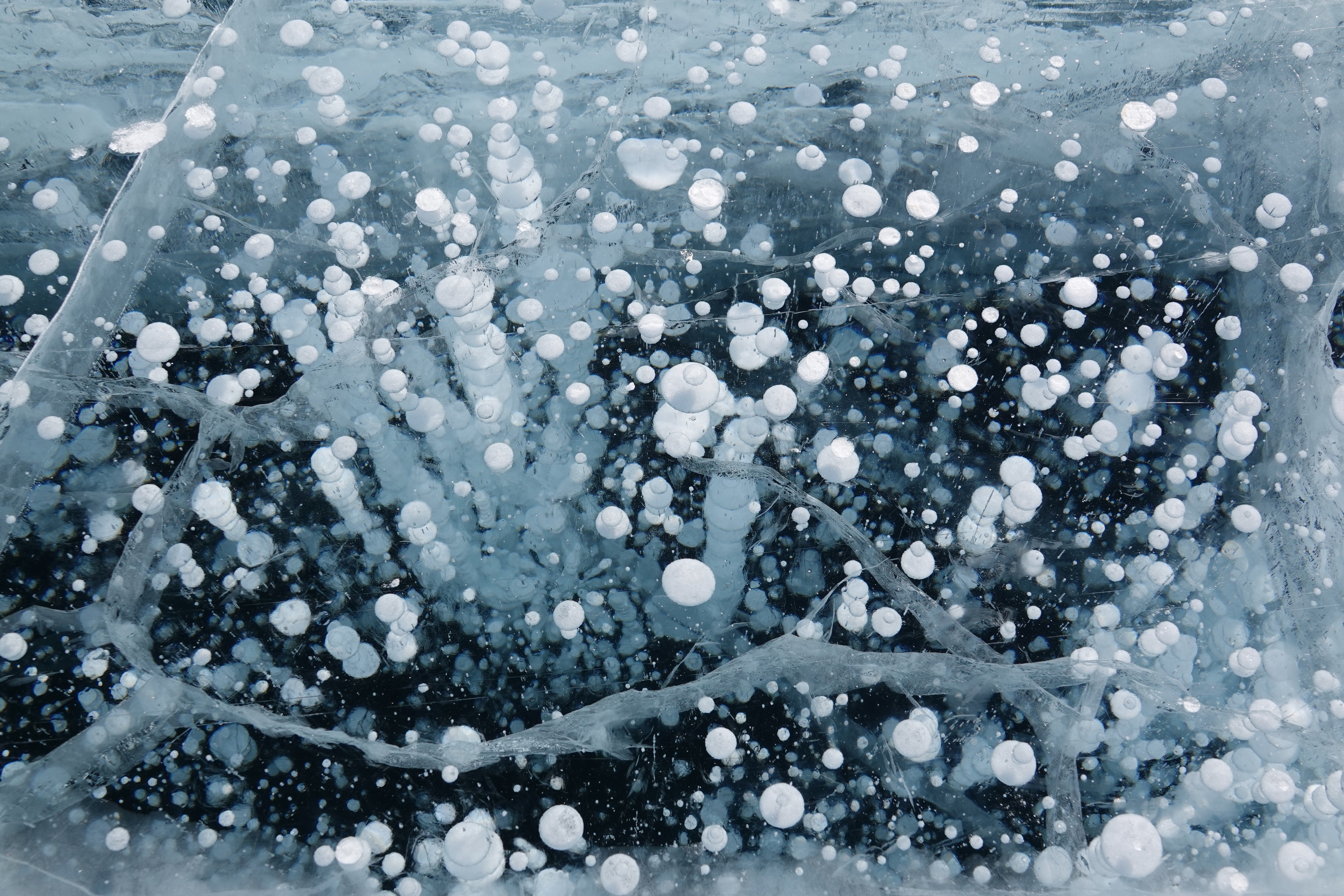
On the shoreline, clear, geometrical chunks create beautiful prisms when the sun shines through. Around us, tourists marvel as they walk on it. Some lace up skates. Many pose for Instagram selfies to impress friends back home.
"We have the biggest ice rink in the world, the clearest ice, the biggest reserve of pristine water and all of this attracts people," Pobotkin told CBC News.
"There's a real boom right now."
WATCH | Drone captures stunning views around Lake Baikal:
Once desperately poor and off the beaten track, Lake Baikal has suddenly become one of the most popular places in Russia.
But some here believe that popularity has come at too high a price for the area's ecology. Moreover, trying to strike the right balance has ignited a bitter fight with government officials trying to manage the growth.
We're 5,000 kilometres east of the capital, Moscow, on the western side of Baikal.
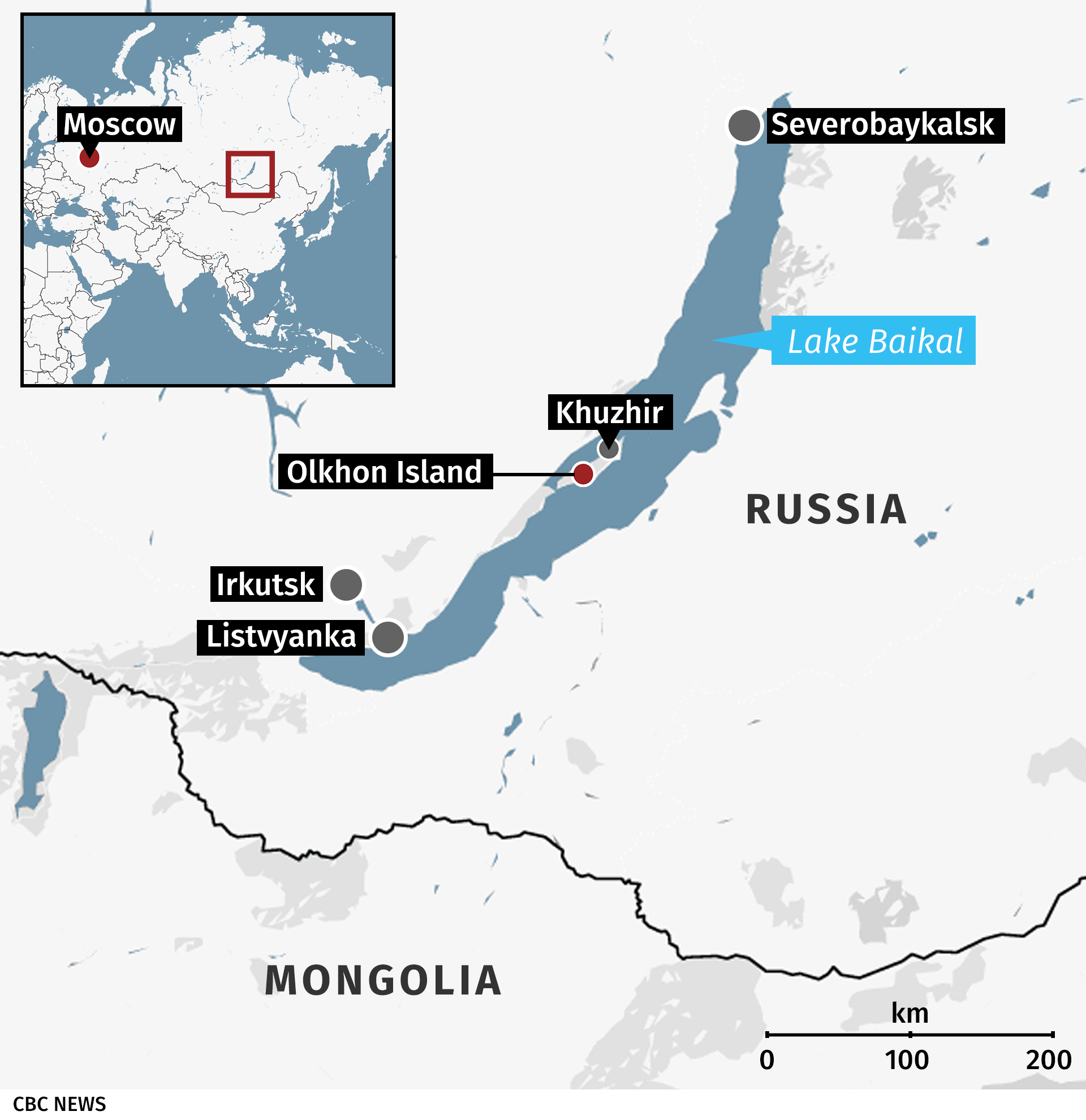
Stretching 640 kilometres, the crescent-shaped lake is about twice the length of Lake Ontario, although only about a third as wide.
Baikal's immensity though isn't best appreciated by the area it covers, but rather its tremendous depth.
The lake bottom in several spots descends further than any other body of freshwater — more than 1,600 metres — four times the deepest part of Lake Superior.
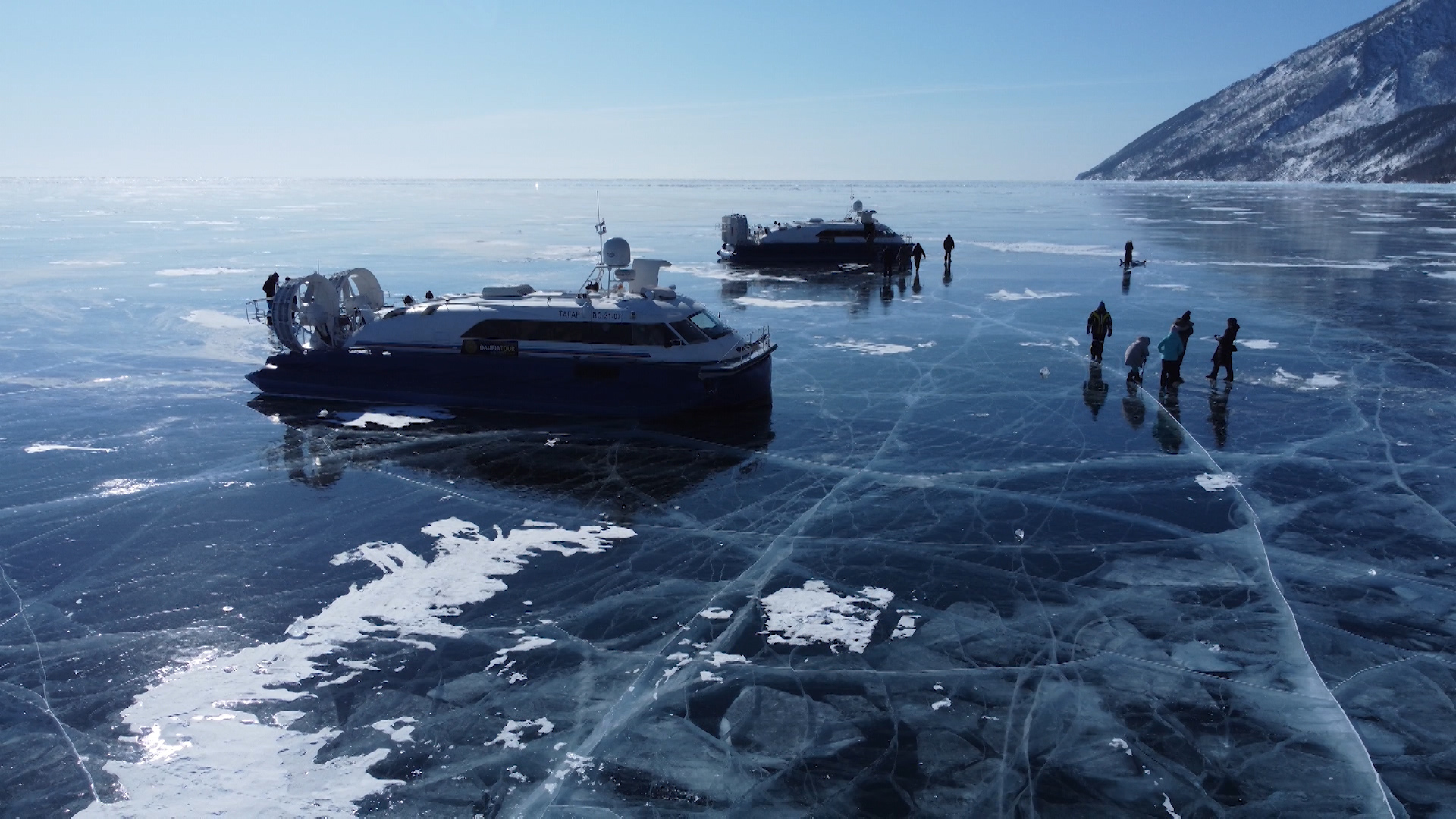
Baikal is also the world's oldest lake — formed 25 million years ago.
That makes it ancient compared to the Great Lakes, which filled up only 15,000 years ago or so after the last ice age.
If there's one symbol of the tourism boom that's engulfed Baikal, it's the hivus, (pronounced hee-voos) or hovercraft in Russian.
Just a few years ago, there were hardly any hivus on the lake.
Now, they've become the go-to way of getting around, with dozens parked on the ice off the tourist town of Listvyanka, the main gateway to Baikal.
In just a few hours, they can whisk tourists past spectacular landscapes over hundreds of kilometres of shoreline.
"There's a shortage of them," said Pobotkin. "We need more investment in this area for transport — it's really in demand."
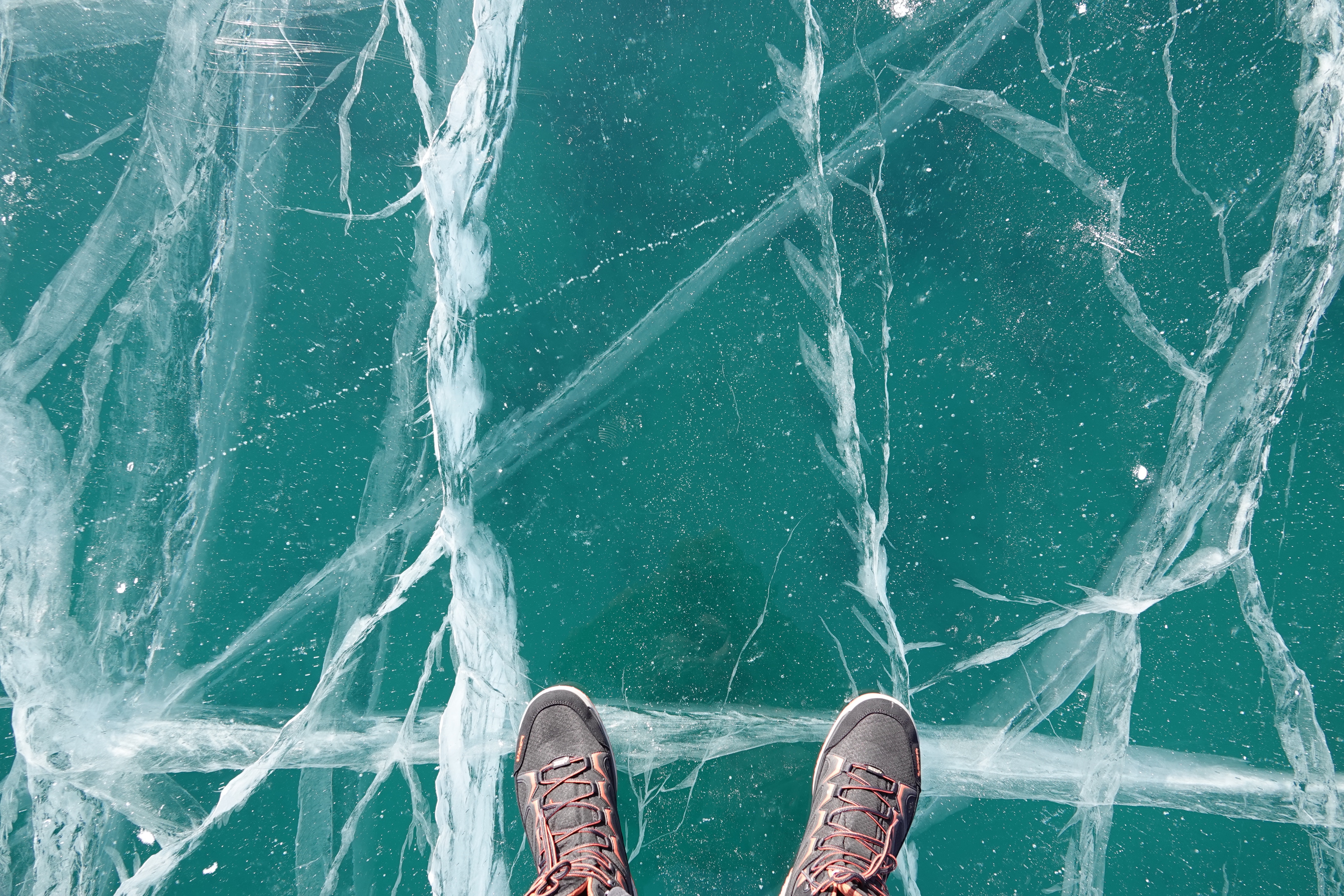
Irkutsk's tourism agency says in the year before the pandemic hit, 2019, 1.8 million people visited Lake Baikal, with tourism-related activities pumping more than $116 million Cdn into the region's economy.
The number of foreign visitors, especially from China, has been ramping up steadily, growing by roughly 40 per cent in the year before the pandemic.
It all started with visits in the summer, with people coming to hike, visit hot springs and enjoy the lake's beaches.
But winter "ice" tourism has also surged of late, doubling year over year, according to the tourism agency.
With most international borders closed in 2021, foreign visitors have been replaced this season by well-to-do Russians swapping their winter break on the slopes of the Alps for a trip to Baikal.
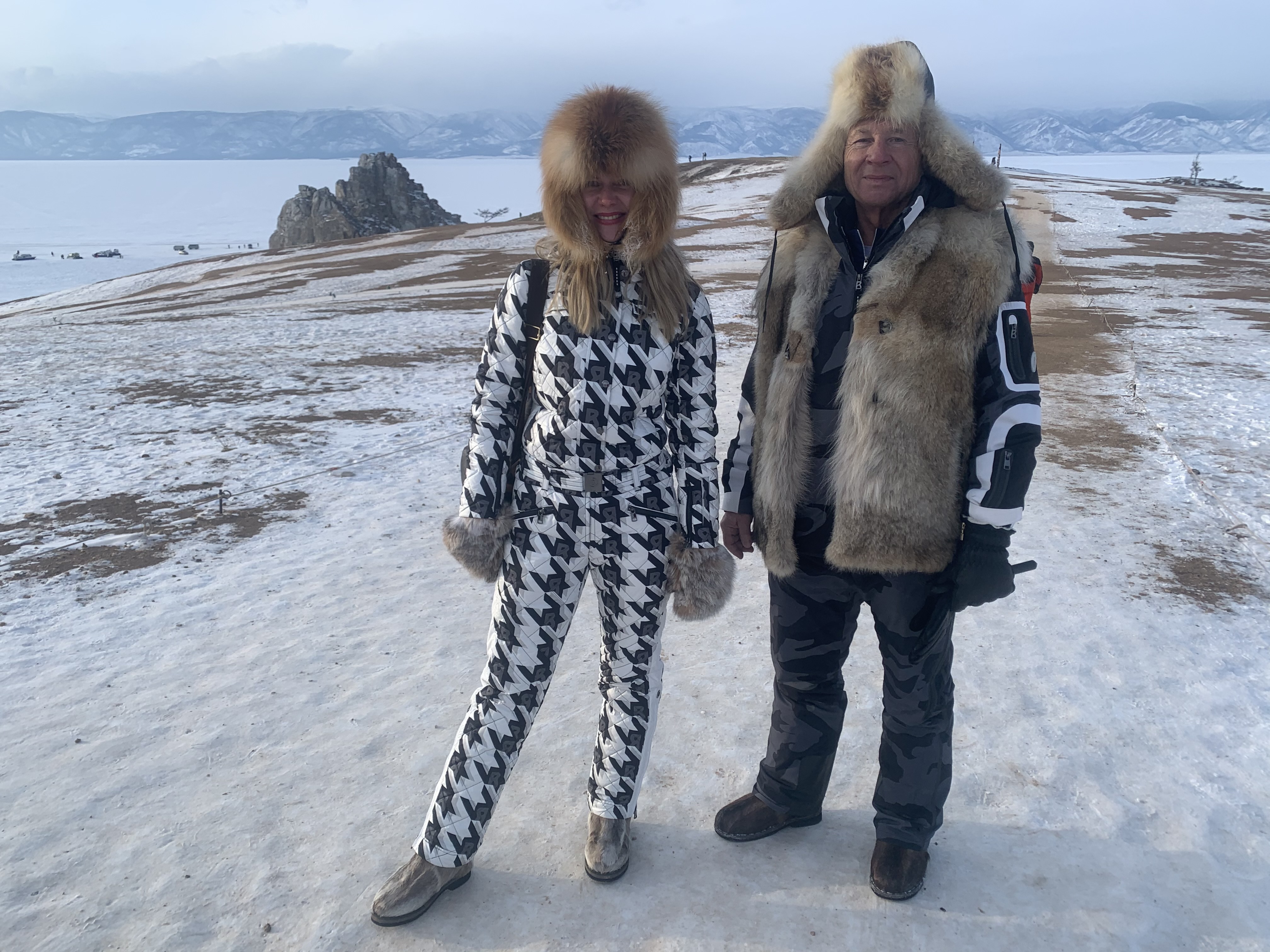
"I think it's the best holiday ever," said Elena Ivanova, 34, who came wearing a fashionable ski outfit with a fur-encased hood. She and her partner were visiting Baikal for the first time.
"I am very grateful for this part of COVID-19 because we have a chance to travel and see our big incredible country."
The influx of visitors has transformed Baikal's traditional resource-based economy and enriched many who live on its shores.
In a single decade, impoverished former fishing villages have been infused with new wealth and a sense of purpose.
Many young people who grew up in the area are now choosing to stay, attempting to make a living in their home communities rather than going somewhere else.
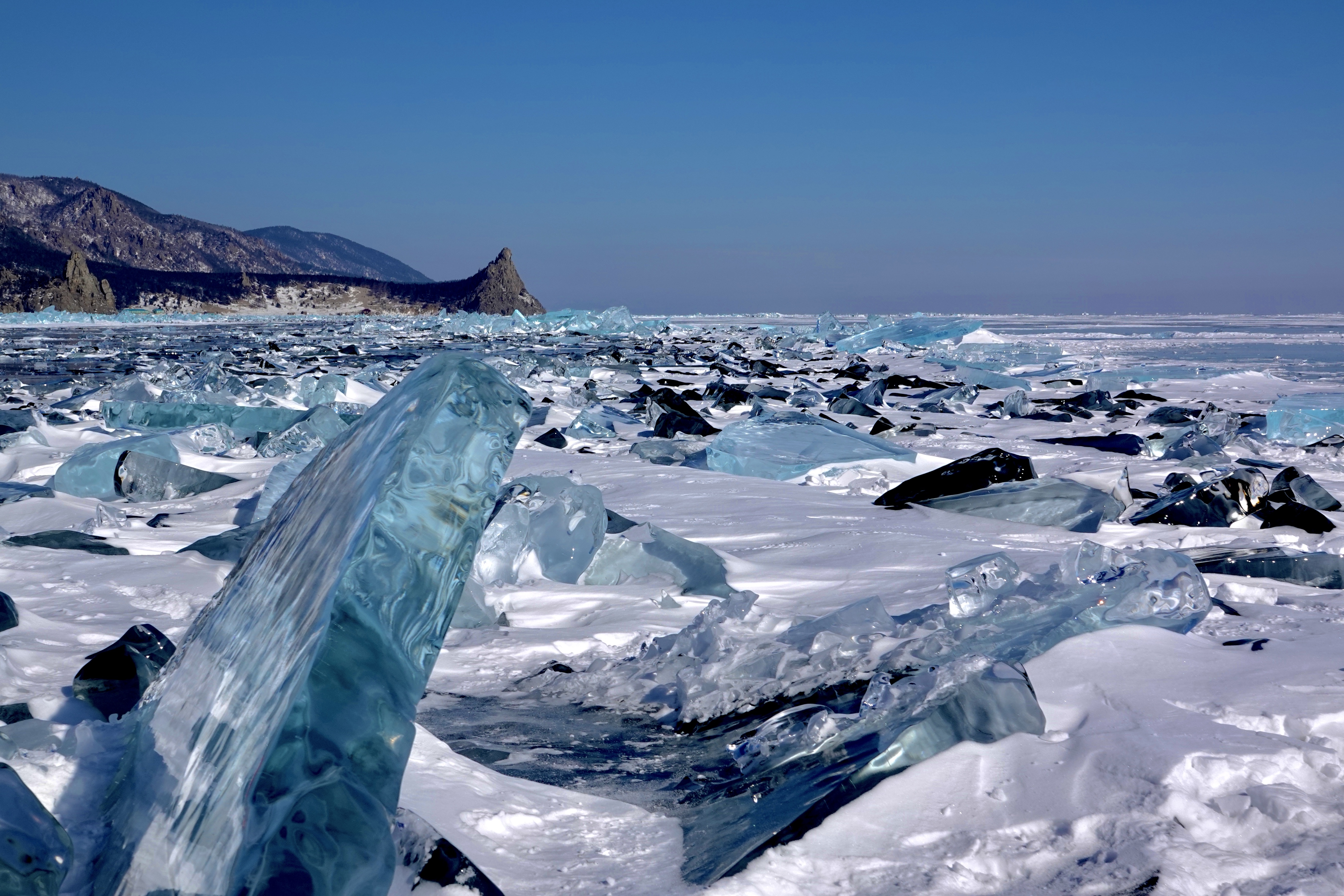
But the arrival of so many tourists has also challenged Baikal’s ability to cope.
Pollution, particularly human waste, from a lack of sewage infrastructure has become a serious challenge.
Prime waterfront land that was once thought to be off-limits for development suddenly has hotels and cottages on it.
Local plants and wildlife are under threat, say environmentalists.
And there are new, bitter divisions and mistrust over whose vision for the future of development and tourism of this natural wonder will eventually win out.
I. 'The world's water well'
Baikal's vastness is deceptive.
While there appears to be plenty of room for tourists to sprawl out on the ice during the six weeks or so of the winter season in February and March, the infrastructure to support everyone is limited.
Nowhere is that more evident than on Olkhon Island, a unique ecosystem within Baikal and the lake's most popular destination.
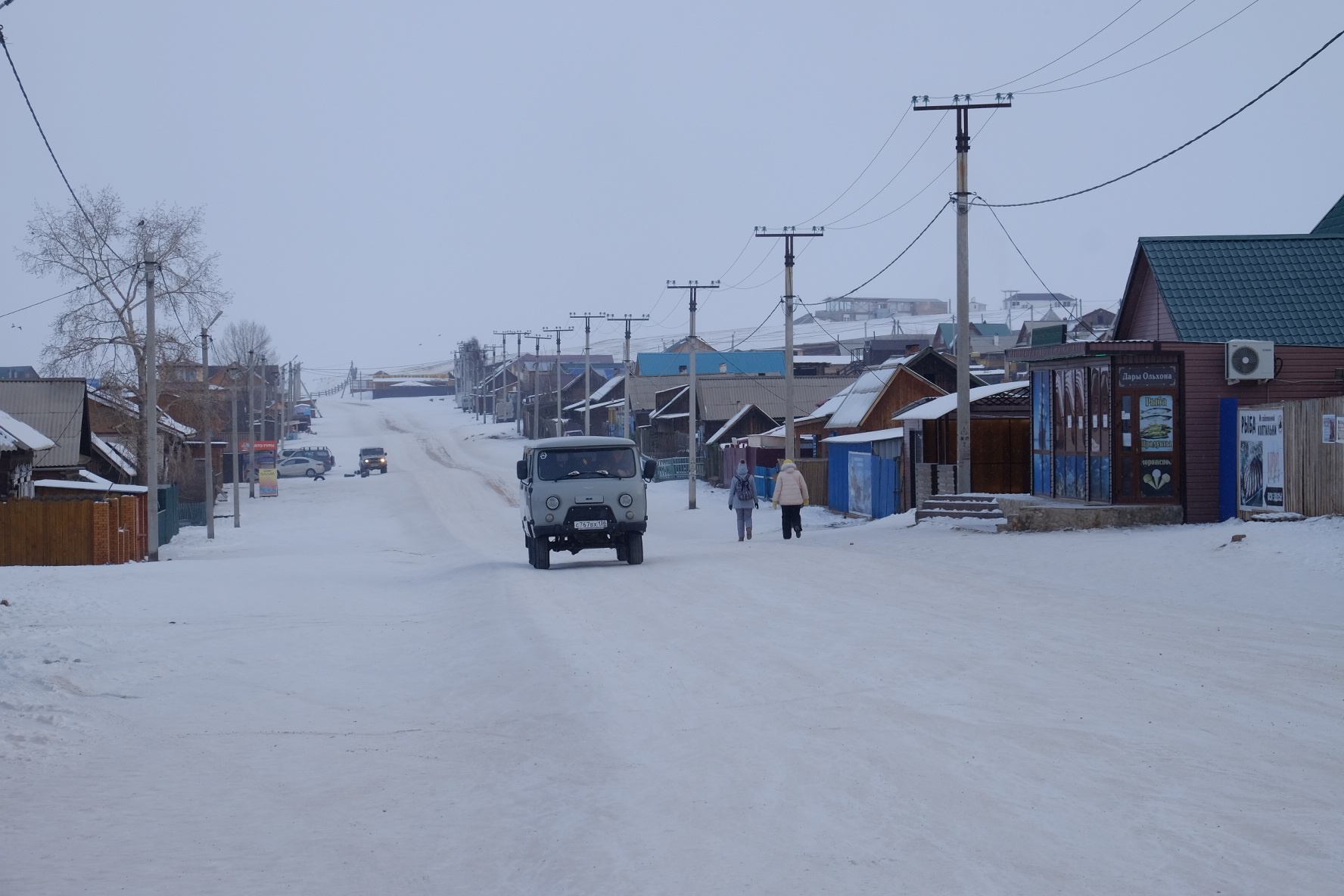
The main town of Khuzhir, population 1,900, is made up of simple wooden homes and dirt roads. But it has been expanding quickly and there is plenty of evidence of new buildings that have gone up in the last two or three years.
The main landmark is a rocky spit known as Shaman Rock, which overlooks the ice with stunning panoramic views.
For many, it's the most sacred part of the lake, long revered by members of the Buryat nation, the Indigenous people of the area.
Thirteen prayer poles perched at the top of the hill and wrapped in colourful ribbons represent 13 deities of nature.
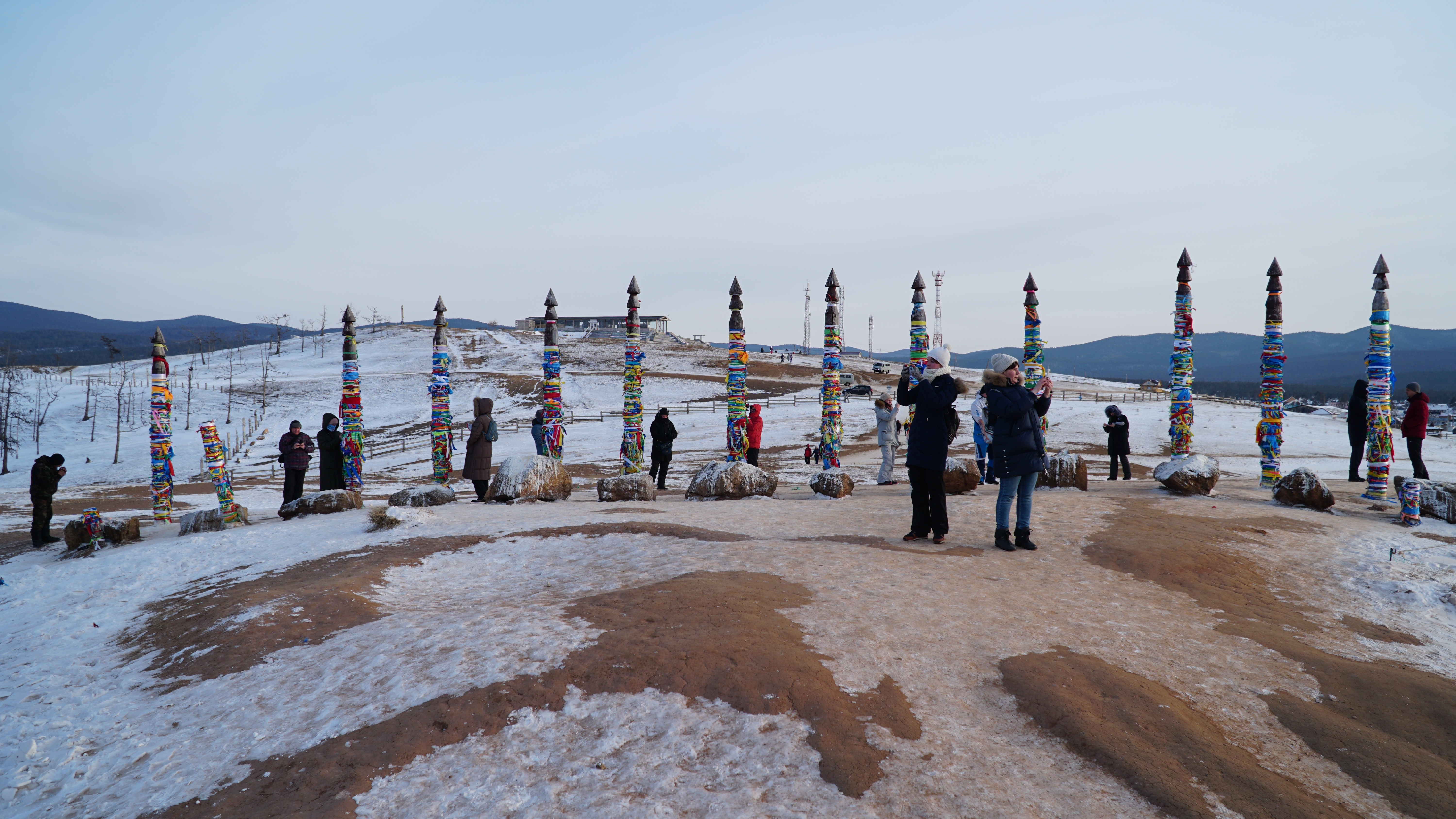
"It was so sacred that your average person wasn't even allowed to stand close to it," said Vitaly Ryabtsev, a bird and wildlife biologist who lives in nearby Irkutsk.
Ryabstev has emerged as a vigorous opponent of Baikal's rapidly expanding tourism industry, arguing the pollution and waste it generates have already harmed the delicate ecosystem.
"Tourism ... is the No. 1 polluter of Lake Baikal," he told CBC News in Olkhon.
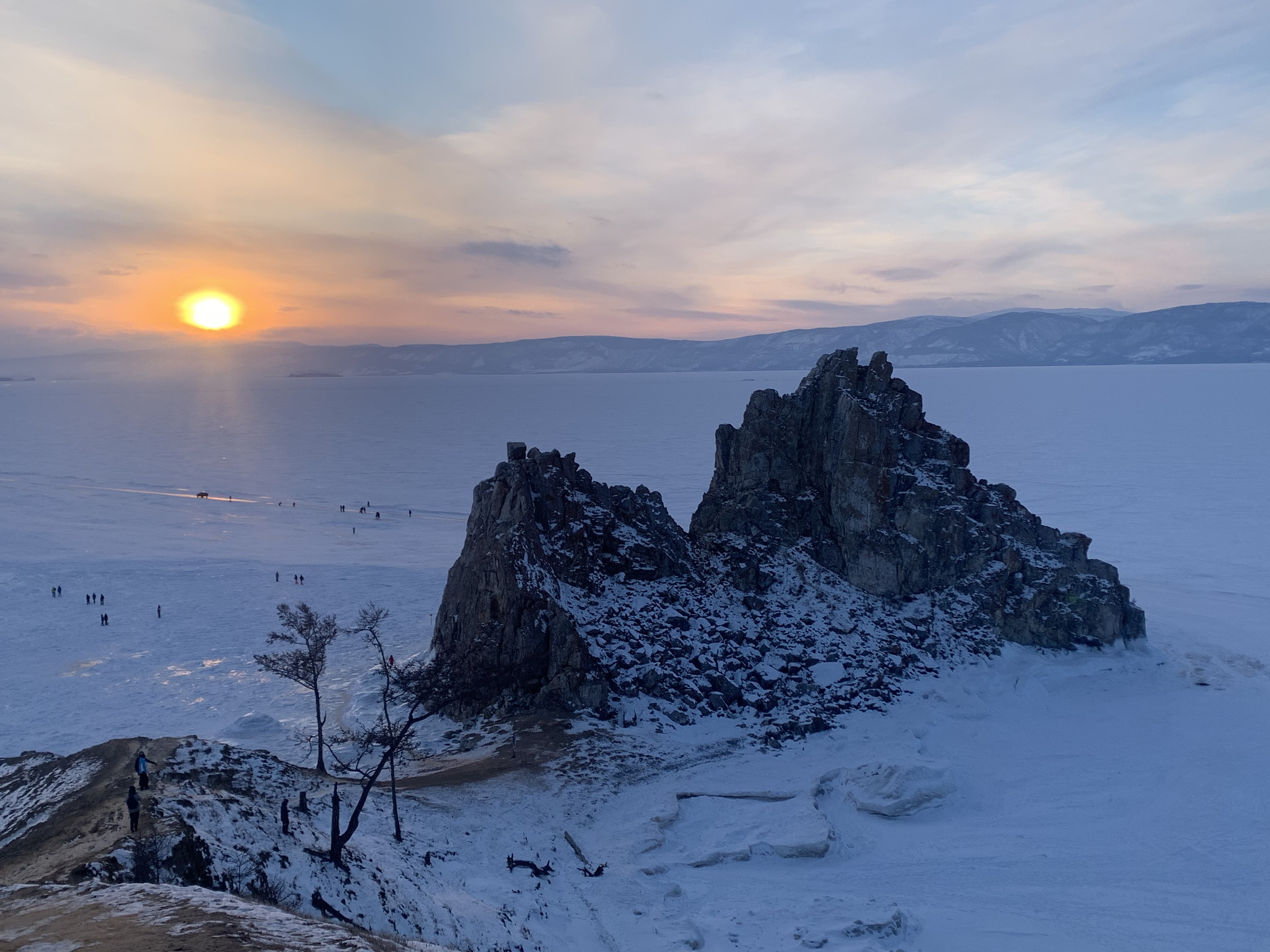
"Baikal is like the world's water well — it holds 20 per cent of the world's drinking water.
"You either develop tourism or protect the clean water, but the two don't go together."
There are roughly 4,000 rooms for tourists on Olkhon but the island has no sewage system.
Every day, all their waste has to be trucked off the island, but Ryabstev said that often doesn't happen.
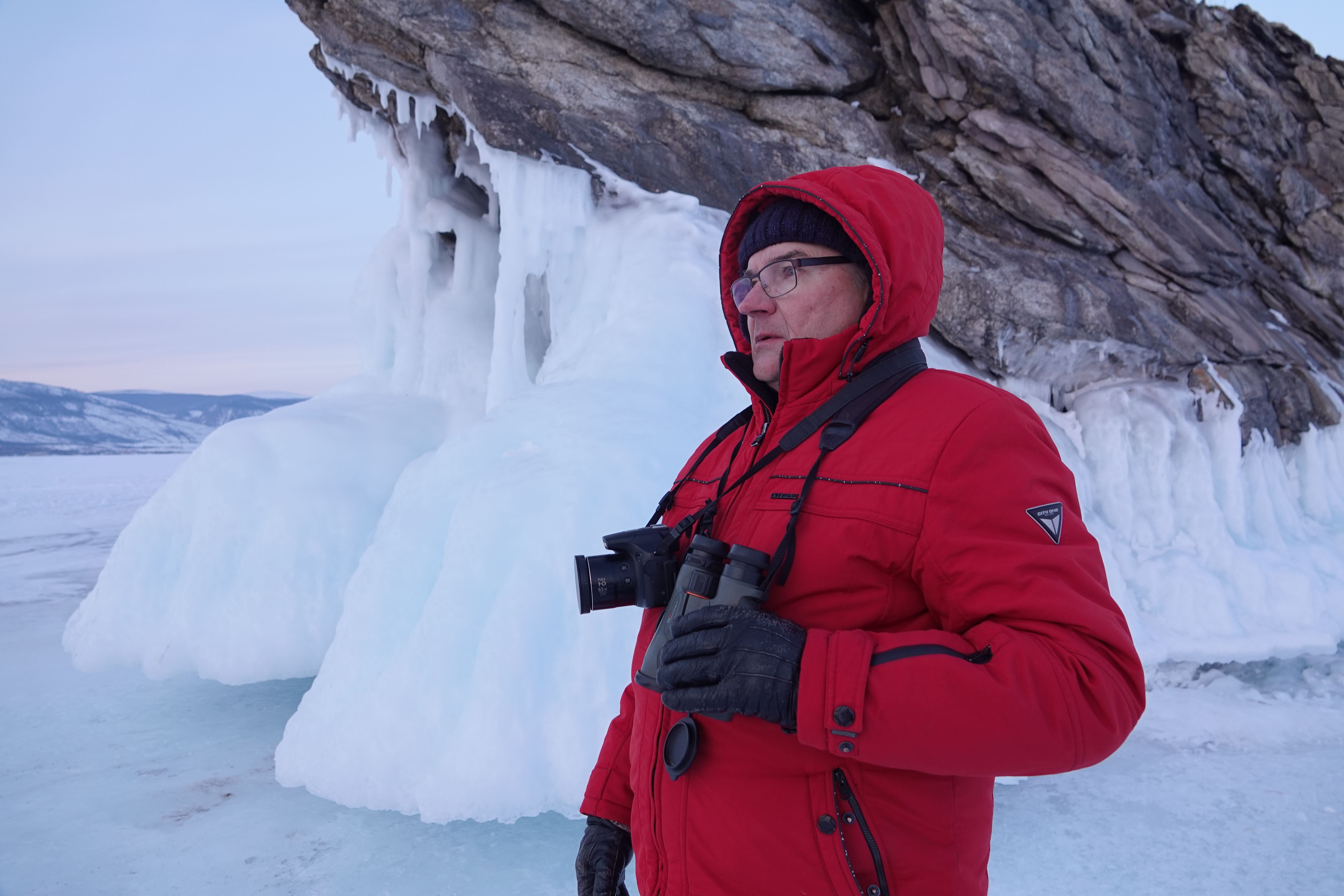
"They are draining sewage straight into the lake," he said of the hotels and lodges.
In September 2020, scientists at the Limnological Institute in nearby Irkutsk took 270 water samples from 32 shoreline sites along the lake and reported every location with human settlements had unacceptably high levels of toxic algae.
In many instances, the algae was blanketing beaches and choking the life out of shoreline creatures such as sponges.
"The degradation processes are progressing and worsening," said the institute's report.
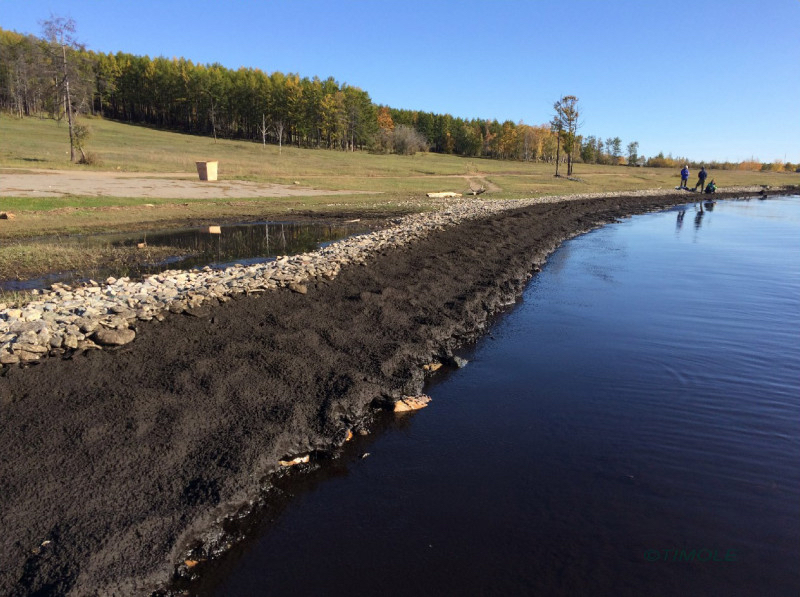
Ryabtsev said now in the "shallow zone" around the lake's edge, people have been told not to drink the water anymore.
Baikal is home to more than 2,000 species of plants and animals that don't exist anywhere else on the planet, Among them is the omul, a tasty whitefish.
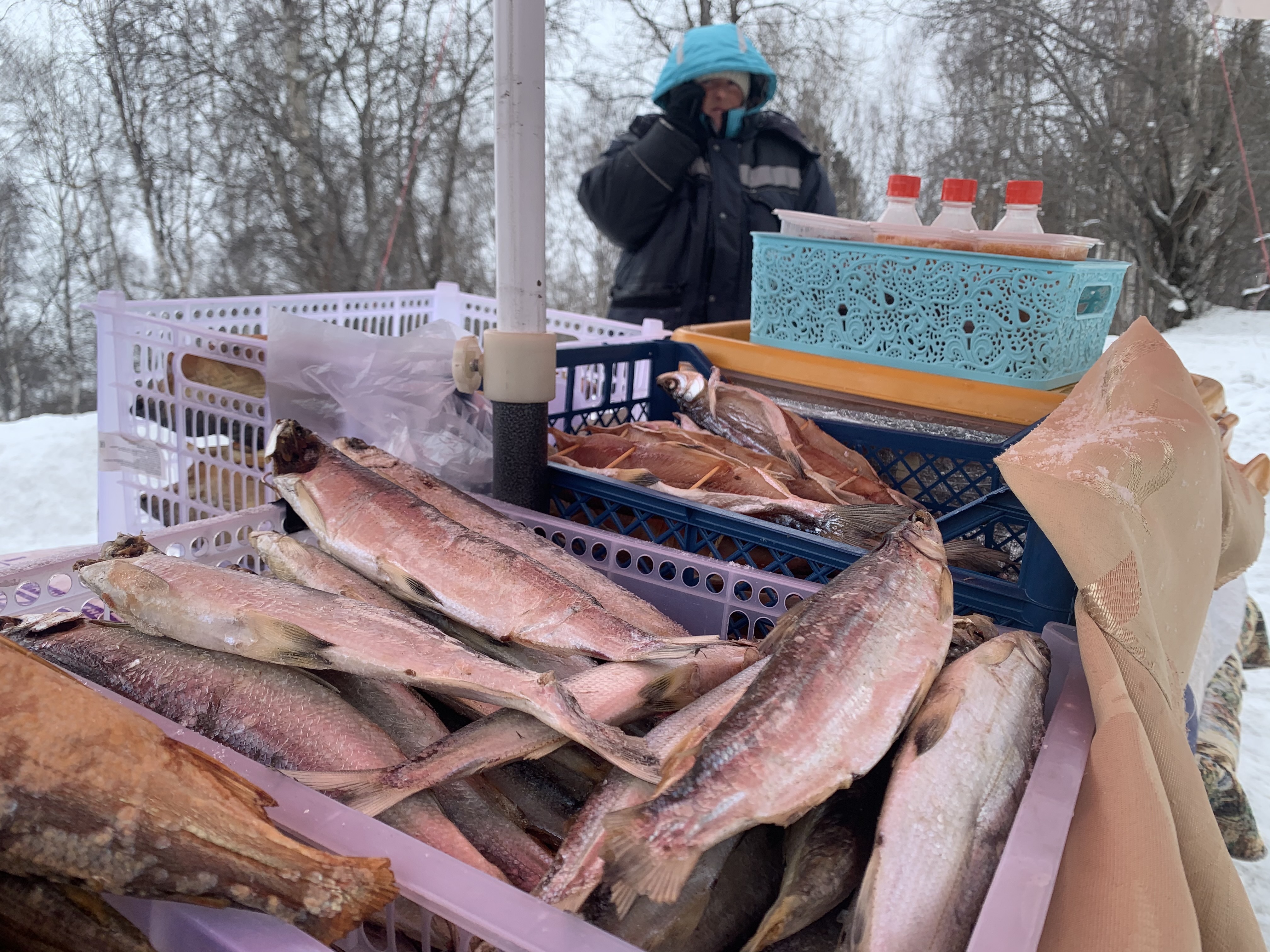
Once ubiquitous, its stocks have been on a downward track for well over a decade, fuelled by commercial overfishing.
However, UNESCO, the United Nations' cultural and scientific agency, has said overfishing isn't the only culprit. It also notes Baikal's ecosystem is under "significant stress."
In October, Russia's Fisheries Ministry banned all commercial fishing of Omul.
However, some fishing clearly continues as omul remains readily available in markets and roadside stalls, and ordering it restaurants didn't seem to be a problem either.
On Olkhon, Ryabtsev said, ecologically and culturally sensitive areas of the shoreline that have panoramic views of the lake or are especially close to Shaman Rock have also been turned into construction sites.
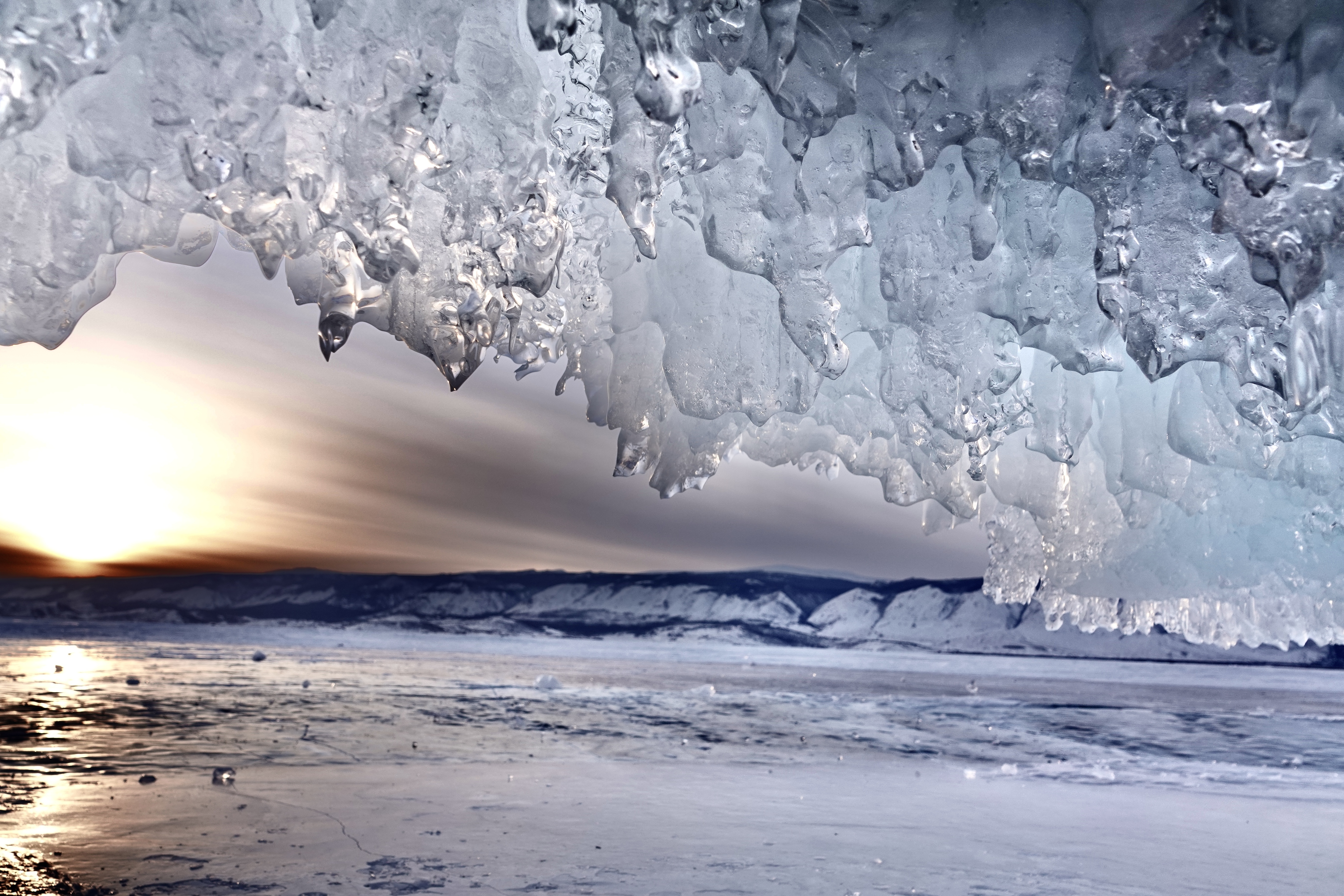
Much of the work, he said, was illegal and either done without proper approval from the government or approved by corrupt officials.
"The problem is a massive violation of laws."
The central authorities in Moscow don't challenge Ryabtsev's assertion that mistakes were made in the past but say for several years now they have been taking the issue of preserving Baikal extremely seriously.
In 2017, President Vladimir Putin pronounced pollution and excessive development to be a major problem.
But the government's actions since have been met with deep mistrust and suspicion by Baikal residents — many of whom now fear for their livelihoods.
WATCH | How to get around Siberia's tough terrain:
II. State of confusion
The central issue is that there are no clear rules about where it is legal to build on Olkhon and what areas are off-limits.
Much of the land in this part of Baikal was designated as the Pribaikalsky National Park in 1986, a few years before the fall of the Soviet Union.
But over the decades that followed, little effort was made to define park boundaries or inform residents about what the designation might mean for them.
One former mayor — who later served three years in jail — sold off parcels of land, including prime waterfront property, and gave the new owners legal title and documents.
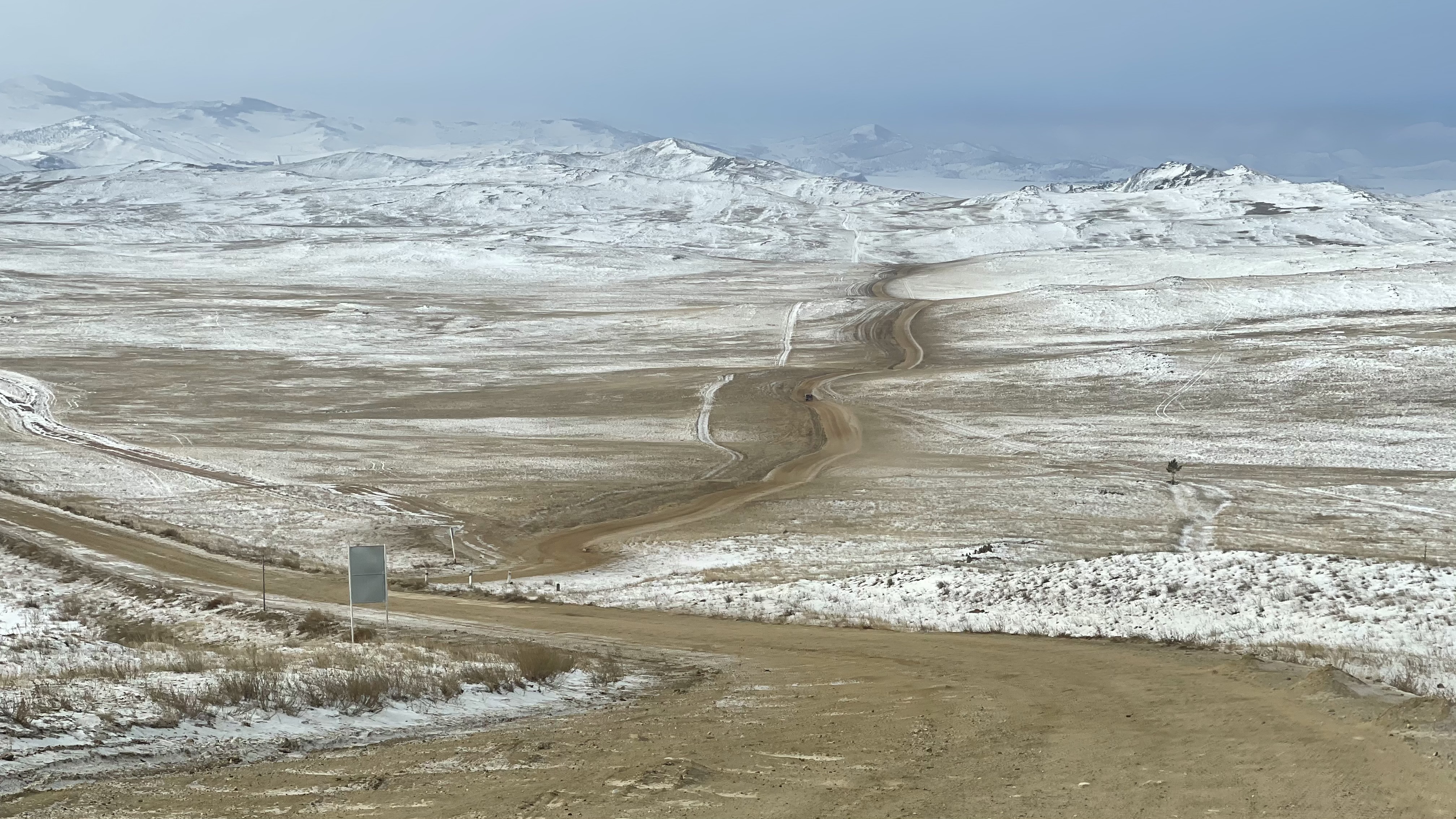
Some land was bought and resold several times until 2017, when the federal prosecutors' office stepped in.
The office ordered that most new construction be frozen.
In other cases, buildings that had recently been built were ordered torn down. The result has been that entire complexes of new cottages or guest houses now sit abandoned and unusable.
A mess of lawsuits and litigation has followed, ruining livelihoods and dashing the dreams of many hoping to earn a living from the blossoming tourism industry.
The newspaper in nearby Irkutsk has reported as many as 269 properties on tiny Olkhon might be affected in some way by the park designation.
"We do not have clear rules here," said Olkhon resident Galina Sibiryakova.
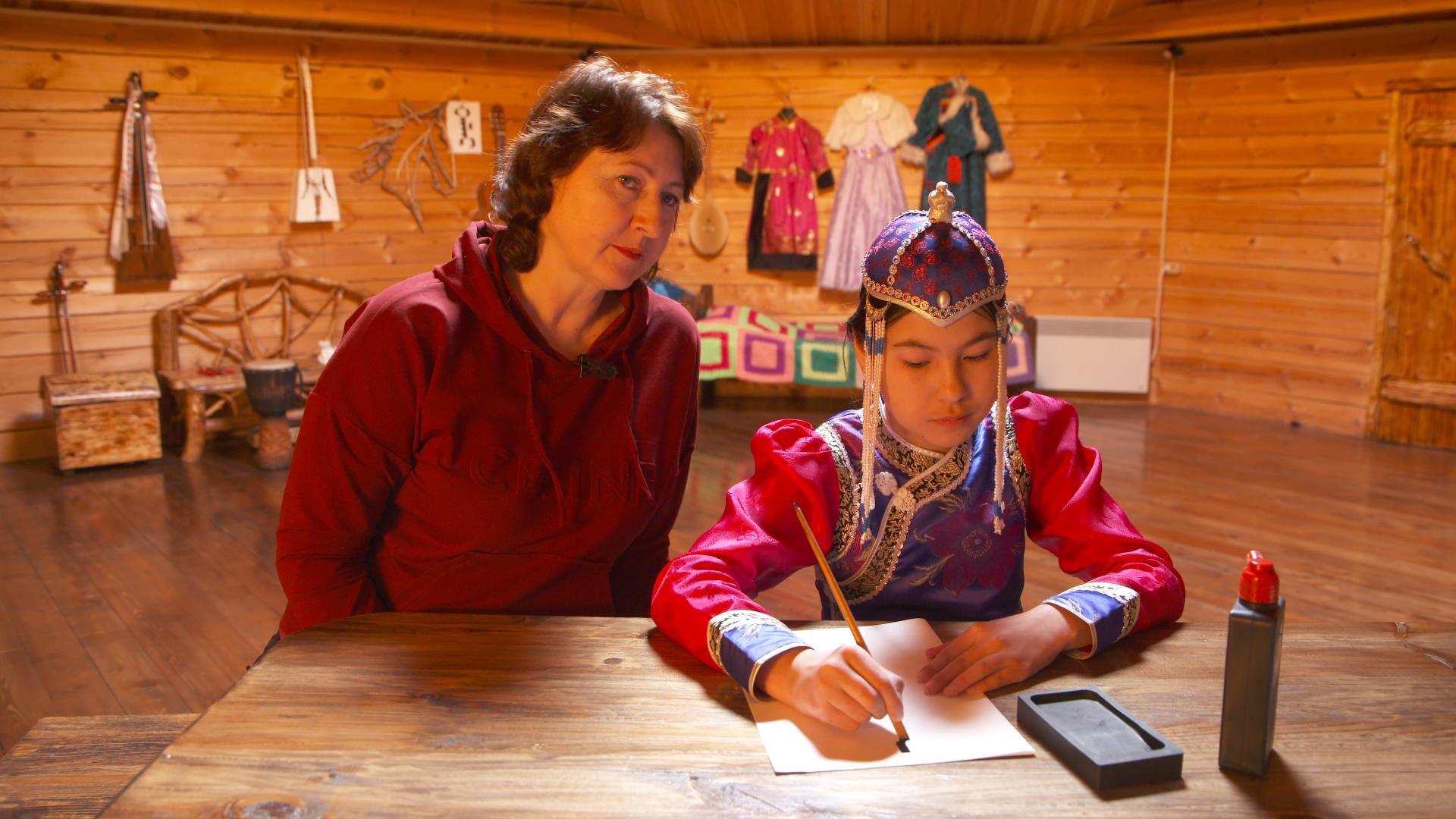
For Sibiryakova, the fight to keep the waters of Baikal clean is one that's been passed down through the generations.
Her father and grandfather were both biologists on the lake and she was among the activists who led a successful fight to shut a polluting pulp mill in 2013.
As a member of the Buryat nation, the first people to migrate to the region centuries ago, Sibiryakova said she made it her mission to monitor and fight pollution along its shores.
"We're trying to protect at the least the shore, asking the government to forbid the building of hotels near the lake and near the water."
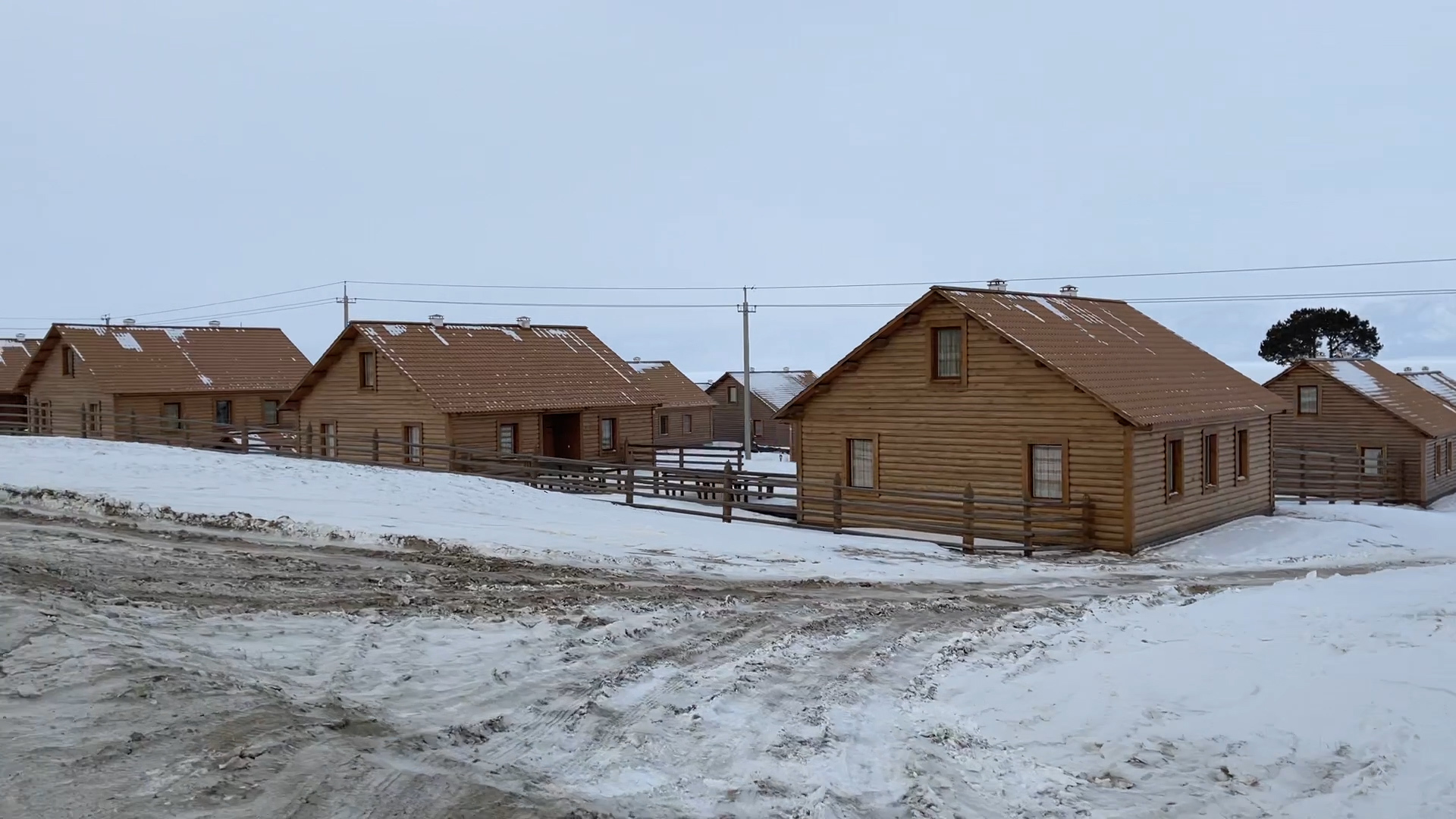
But while her goals and those of the government may be aligned, their tactics about how to achieve that protection are not.
"When people have money, our authorities close their eyes," she said.
Sibiryakova believes new rules being invoked by federal authorities are being applied selectively and at the discretion of officials who receive kickbacks for letting some projects proceed while stalling others.
In an interview with a local Siberian newspaper, the region's chief prosecutor defended the conduct of federal authorities, insisting there is no favouritism — and that officials are following longstanding rules for activities allowed within parks.
He told the newspaper that no one was being kicked out and the goal was to "preserve nature," but for Sibiryakova and many other locals, the assurances ring hollow.
Many locals fear the government's real agenda is to evict them — and create a tourism industry controlled from Moscow.
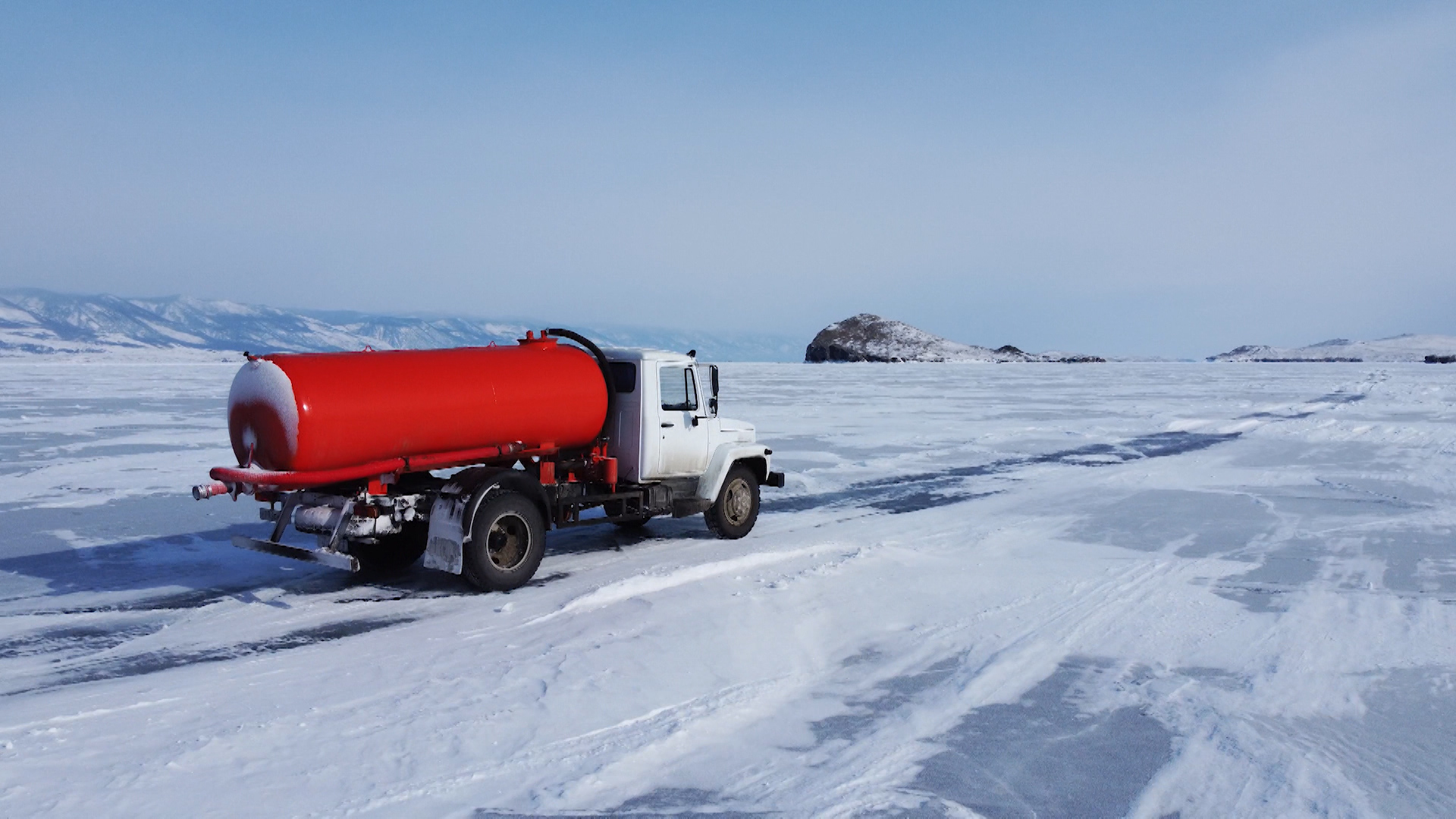
Not long after construction projects were frozen, almost one-third of the people on Olkhon protested near Shaman Rock, demanding park authorities back off and allow the local community to decide how to regulate land use and hotel development.
There's still no end to the impasse.
Sibiryankova acknowledges there's an intense distrust about Moscow's intentions.
"Authorities are very strict — but just to local people," she said.
III: The Pink House
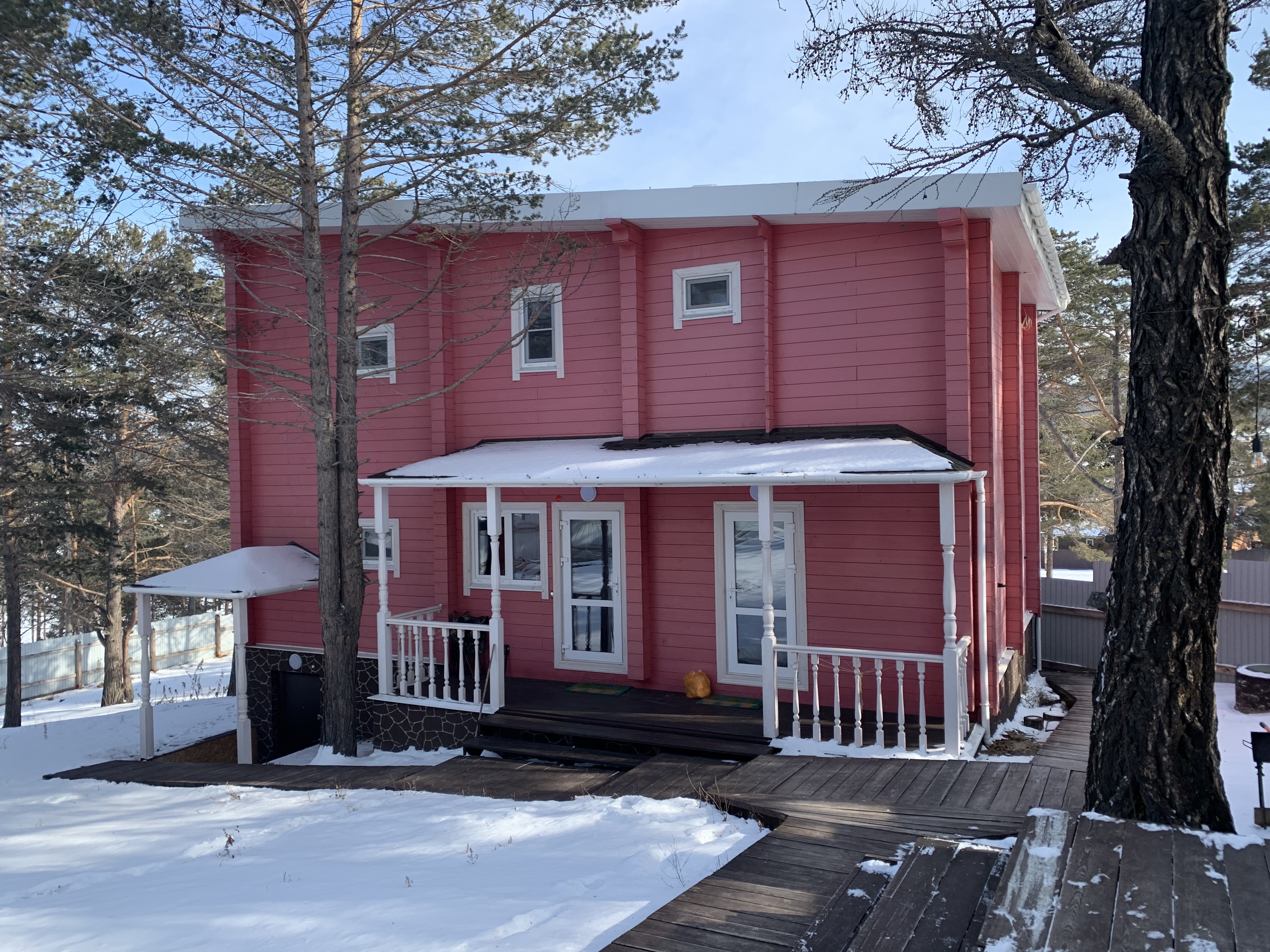
For some families, the fight over developing Baikal has come at a terrible cost.
By now, everyone on the island has heard the story of the "Pink House."
It sits on one of the prime pieces of real estate on a bluff overlooking the lake and just a few hundred metres from Shaman Rock.
It belongs to Elena Plokohova, who moved here from Moscow with her husband, Andrei, in 2017. The couple had intended to start a bed-and-breakfast and raise a family.
But not long after they built the home, authorities told them they would have to forfeit the land and tear down the house, she said.
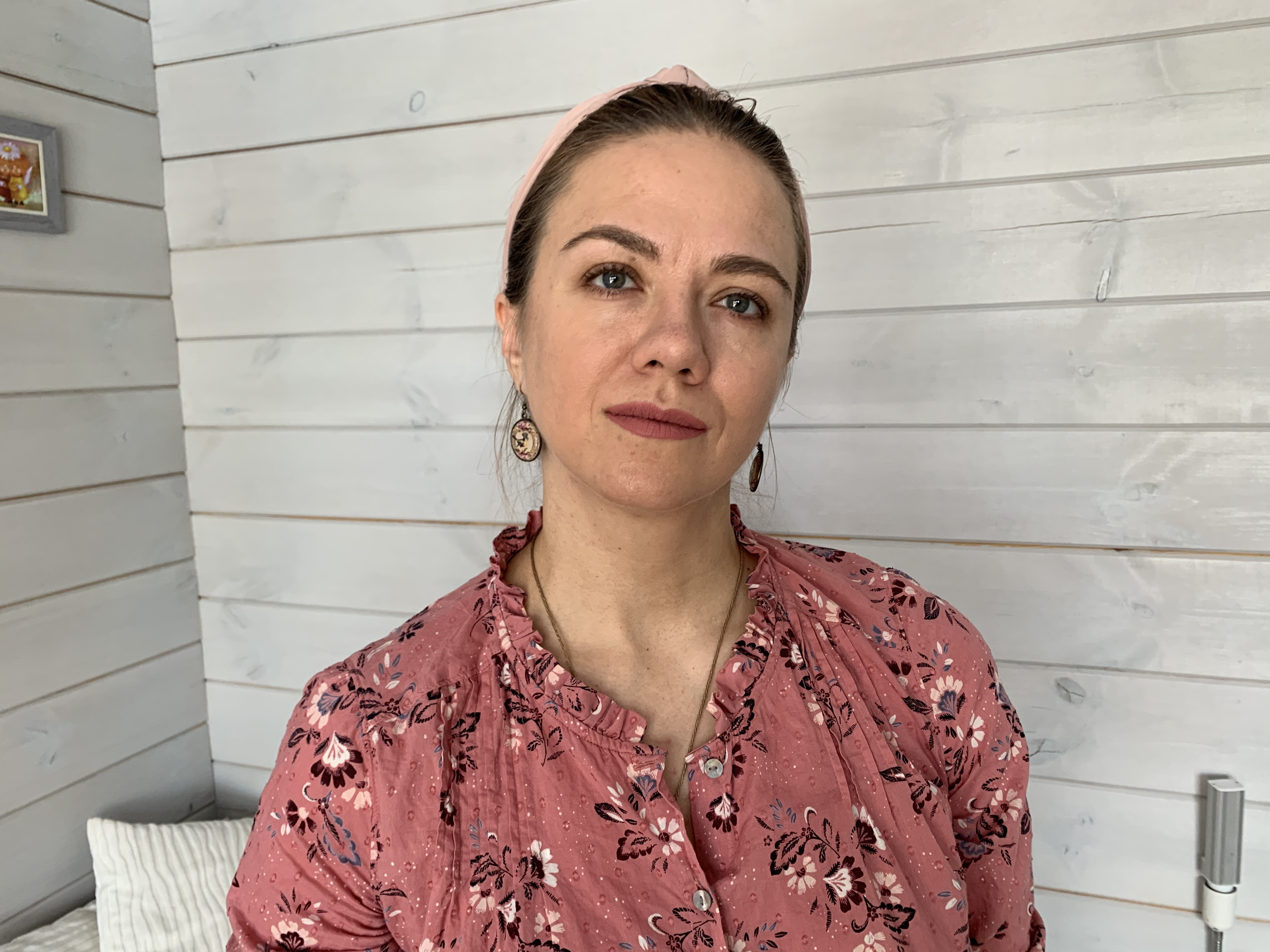
"We were totally shocked, afraid and terrified," she told CBC News in an interview in her kitchen.
"We are just regular people who bought the land, got permission to build and started to build our house — just like millions of other people around the world do."
She said Andrei, who was 46, did not handle the confrontation or the stress that came with it well.
The couple were constantly in and out of court and battling with authorities.
"There was so much pressure. It's impossible to describe it."
Polokohova said he suffered a heart attack.
"My husband could not cope with it. His heart couldn't cope with it and he died."
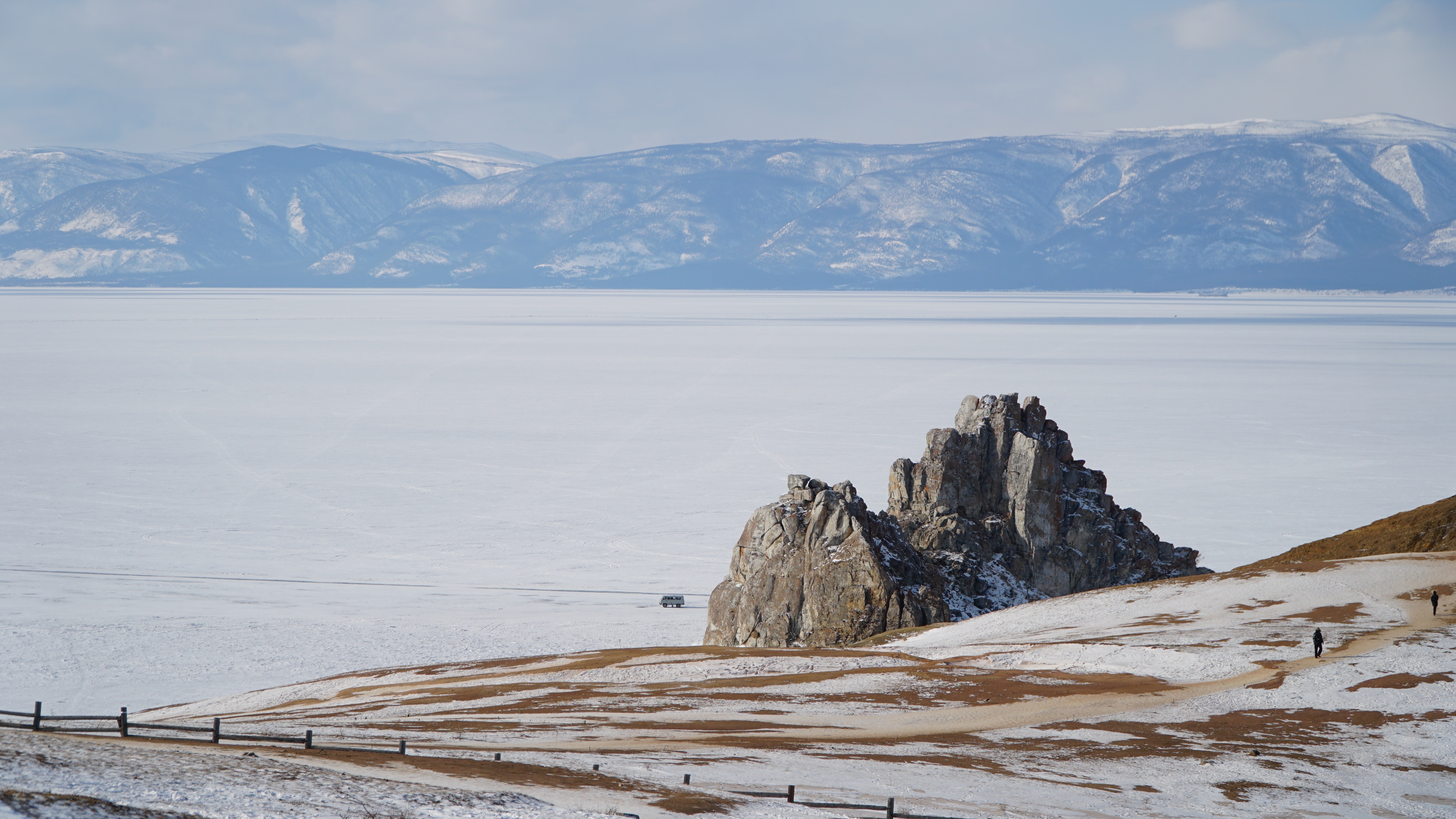
Plokohova still lives in the Pink House and has relied on the help of friends to get by since Andrei's death in 2019.
While their dream is gone, the court case drags on without him, however.
"In theory, I should have already demolished everything and gone away somewhere — I don't know where. I have no idea what to say — I live on, one day at a time."
IV. 'All of your dreams could come true'
If there's anyone who can appreciate the striking transformation of Baikal and the fortunes of its people, it's Natalia Bencharova.
In the early 1990s, she and her husband, Nikita Bencharov, decided to trade in their fast-paced urban lives in Moscow for a quieter existence in rural Siberia.
Back then, tiny Olkhon Island was down on its luck.
The local fish plant, which had been a staple of the economy during Soviet times, had closed, with the loss of hundreds of jobs.
People were destitute and desperate. Families were leaving in droves.
"People didn't have money at all," said Bencharova, who worked in finance for U.S. candy maker Mars before heading to Siberia.
"For so many years, we were poor, poor, poor, to the point that you had to ask your neighbour for food."
The couple were the first to set up a guest house in Olkhon 17 years ago.
At first, she said, the flow of tourists into the area was a trickle.
Then, as more people began arriving, the couple slowly began constructing more traditional wooden Russian buildings and expanding their guest house's footprint in the town's centre.
Then, suddenly the lake was full of "hivuses" and international visitors — mostly from China — were arriving in droves.
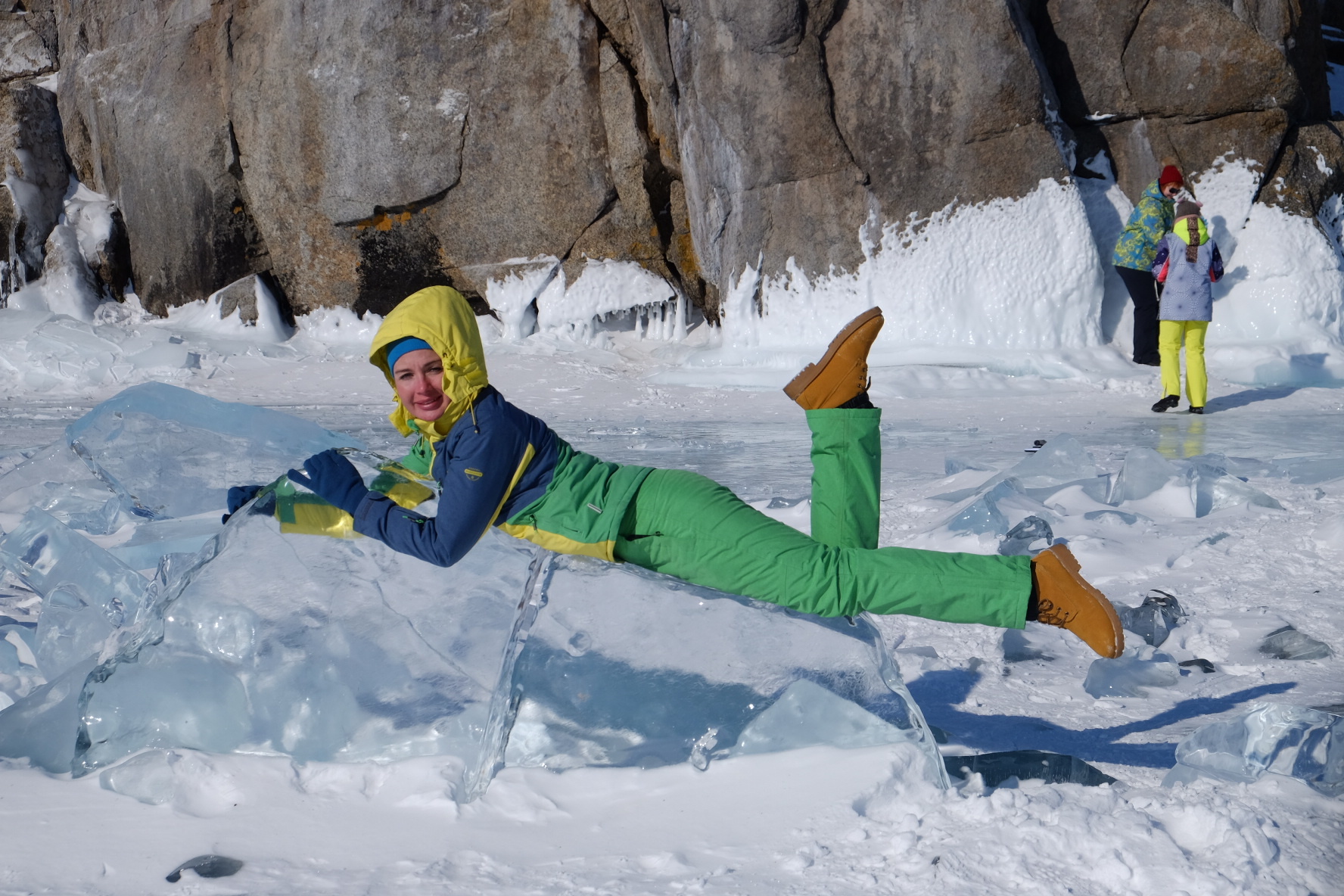
Winter "ice tourism" became a thing and there were even more weeks in the season to earn cash.
"All of a sudden you have this money here," said Bencharova
"And all of your dreams could come true. You could have a car, and an apartment in Irkutsk, you can have better medical services, your kids can get a better education.
"At first, men didn't want to work in tourism. It was all women. Then men found they could do excursions. So now it's men doing excursions and women doing guest houses."
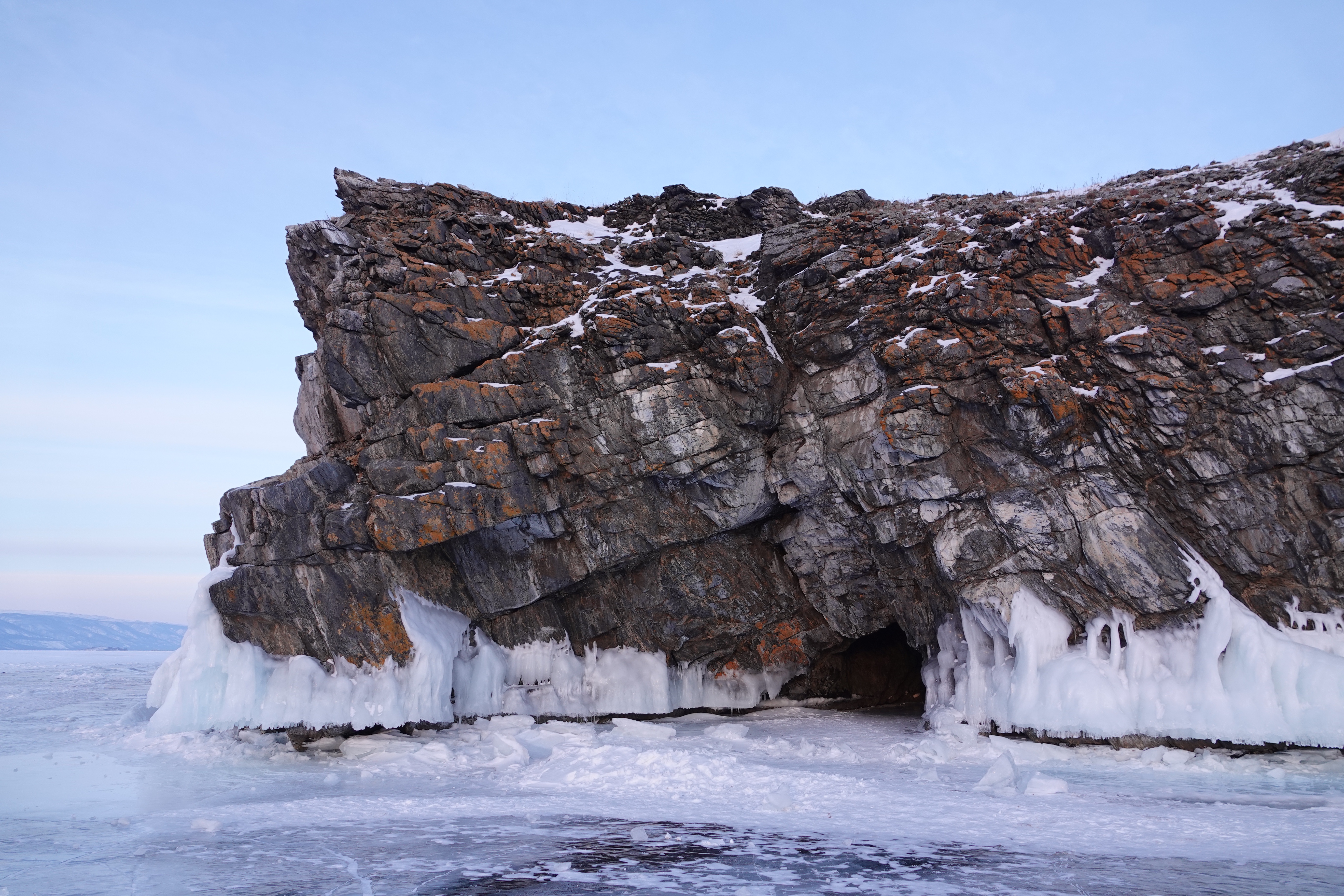
Natalia Bencharova said she believes Baikal and her home in Olkhon can handle tourism at this level without harming the lake.
"I think it's all about rules, behaviour, culture and limits of our activities. If we know it's devastating for the island, we will have to limit the number of tourists," she said, before adding she doesn't believe Baikal has exceeded that limit yet.
And while she refuses to discuss the merits of the government's lawsuits against the village residents, she said she has long feared something like this might happen
"When you know a person — they have personal feelings — and you support people who's buildings are being torn down, but on the other hand, when I looked at it about six years ago, I thought it would happen.
"People were just building like they were crazy."
V. Baikal's future
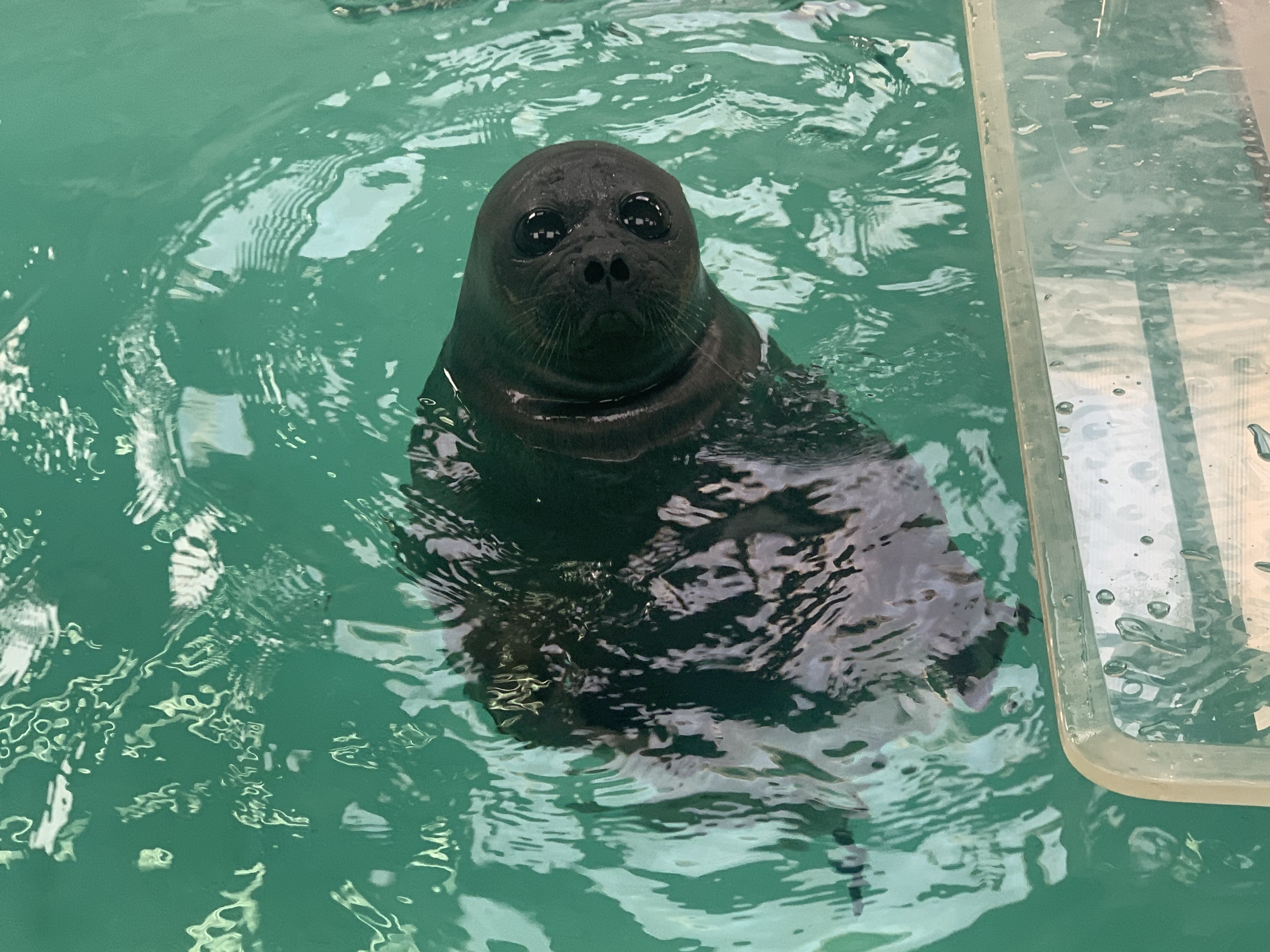
UNESCO has recognized Lake Baikal as an outstanding example of a freshwater ecosystem and said that the thousands of unique plants and creatures, such as Baikal's freshwater seals that live in or around it are deserving of special attention and preservation.
While there's universal acceptance of that statement from Russia's government, environmentalists and local tourism operators, it appears they can agree on little else these days.
There's certainly no love lost between Vitaly Ryabtsev and the government officials who have overseen environmental protections around Lake Baikal over the years, but he's adamant about what he believes must happen next.
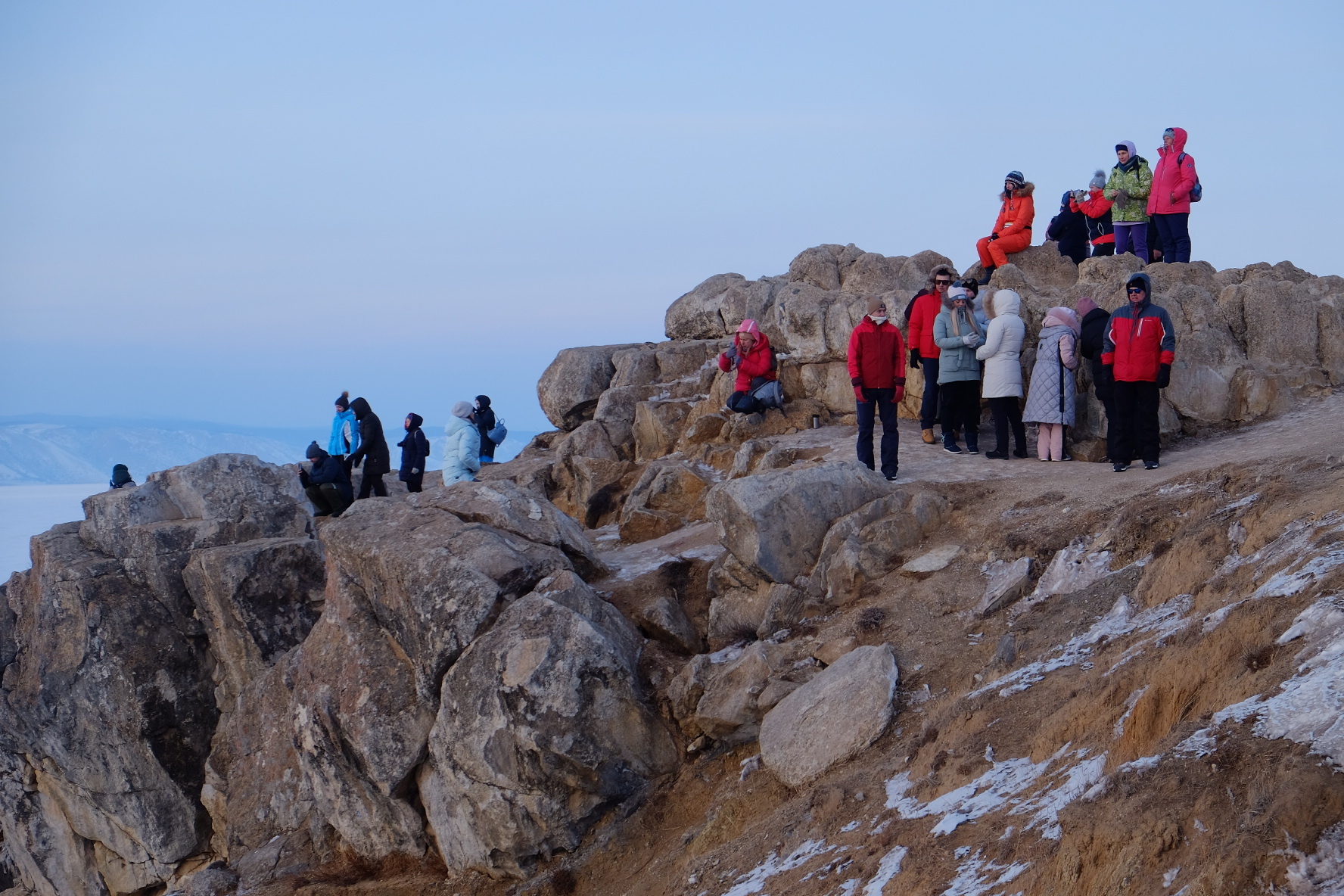
"It would be great if some of these sites like the Pink House were torn down," he told us as our CBC crew stood near Shaman Rock, overlooking the property.
"If we take the side of the landowners, then the result will be a major catastrophe in this area."
Natalia Bencharova has clashed frequently with Ryabtsev over the years, even suggesting "he's at war" with her and many other tourism providers in the community.
She believes crushing the livelihoods of people who earn money from tourism won't serve any purpose, nor will it save Baikal from the threats facing it now.
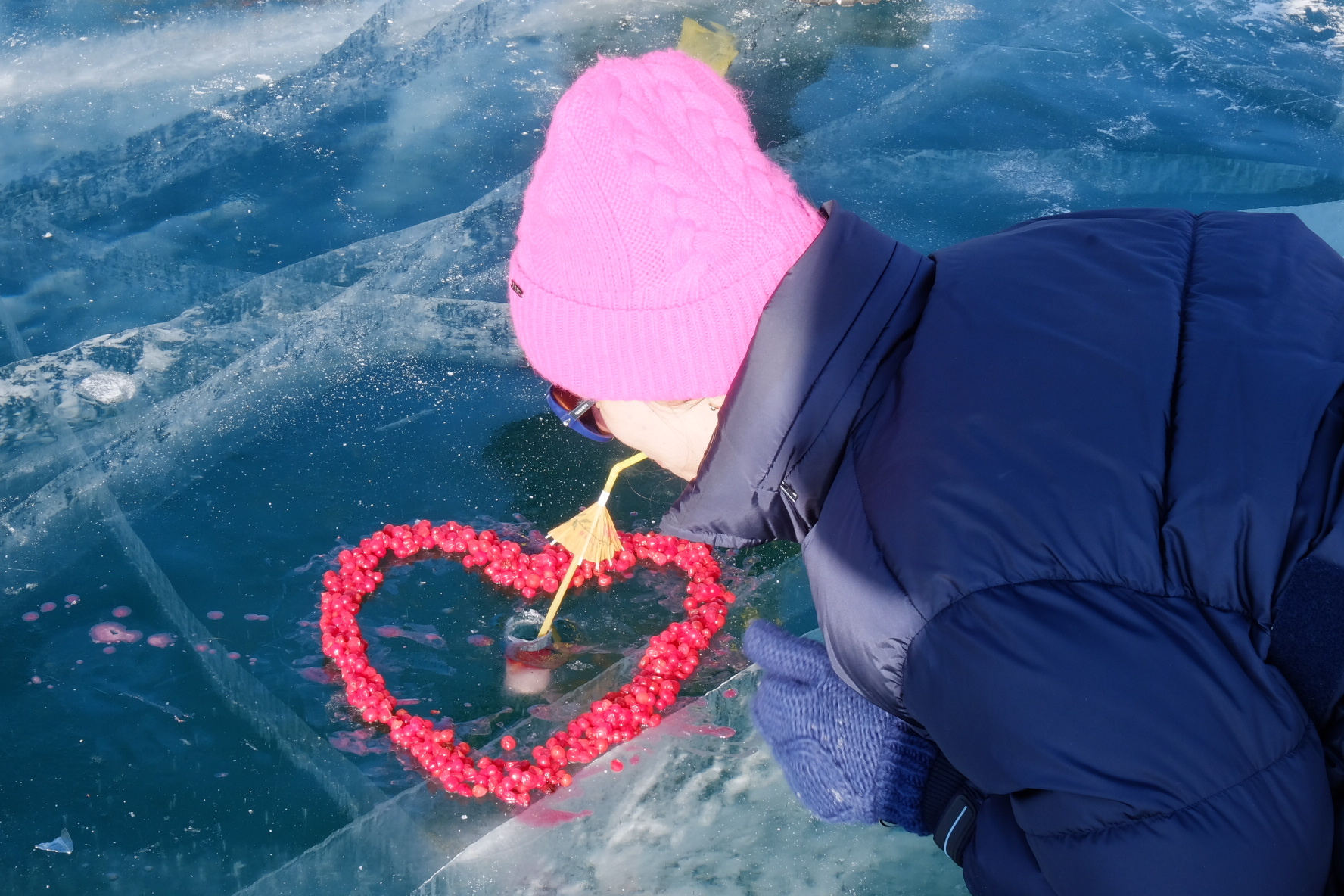
"What we should be afraid of is big hotels coming in," she said, insisting it's only with local people and families in control that Baikal can have a sustainable future.
"You know, I actually felt a little guilty for developing tourism here," she said. "That's what I heard from Vitaly and others."
"But then I thought if we didn't develop tourism the way it is now, that's the fear that big business would come."
Eighty per cent of the people in the village have found this new way of living — they feel attached to the land, she said.
"So for me, tourism is a smart way to earn money if it's limited."
